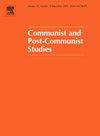“我一直认为,如果我穷,我也应该学习不好。”
IF 1.3
4区 社会学
Q3 INTERNATIONAL RELATIONS
引用次数: 3
摘要
本研究的目的是强调教育中社会阶层不平等的具体性质。这篇文章借鉴了一项更大规模的研究,该研究调查了克罗地亚高中年龄时家庭领取福利金的年轻人的教育成果和工作生涯,重点对三名年轻人进行了传记叙事采访。这些战略性选择的案例的特点是共同的贫困生活经历,但其社会优势和劣势的最初交叉点非常不同(中产阶级陷入贫困、代际贫困以及与反罗姆人种族主义交叉的贫困)。在比较这三个人生故事的基础上,本研究利用布迪厄的习惯观作为一种概念工具,结合认知和情感图式,考察这些年轻人是如何构建自己的生活和教育轨迹的。在这样做的过程中,这项研究建立在Reay等学者的工作基础上,他们将对教育中具体社会不平等的探索扩展到了情感领域,与情感社会学中越来越多的工作一致,情感被理解为嵌入(不平等)社会关系中。因此,本研究的分析重点是,在三个被调查的人生故事中,可能性、可能和不可想象的视野是如何被不同的情感结构所感知和塑造的。这项研究的结果表明,认知和情感图式共同发挥作用,是植根于优势或劣势组合的社会不平等机制的组成部分。本文章由计算机程序翻译,如有差异,请以英文原文为准。
“I Have Always thought that, If I Am Poor, I’m Also Supposed to Study Poorly”
The goal of this study is to highlight the embodied nature of social class inequalities in education. Drawing from a larger study that examined educational outcomes and work careers of young people whose families received welfare benefits in Croatia when these individuals were of high school age, the article focuses on biographical narrative interviews with three young individuals. These strategically selected cases were characterized by a shared experience of living in poverty that was, nevertheless, marked by very different initial intersections of social advantages and disadvantages (middle-class fall into poverty, intergenerational poverty, and poverty intersecting with anti-Roma racism). Based on the comparison of these three life stories, this study utilizes Bourdieu’s concept of habitus as a conceptual tool, incorporating both cognitive and affective schemas, to examine how these young individuals framed their lives and educational trajectories. In doing so, this study builds on the work by scholars such as Reay who extend the explorations of embodied social inequalities in education into the realm of emotions, which are—in line with the growing body of work in the sociology of emotions—understood as embedded in (unequal) social relations. Therefore, the analysis of this study focuses on how, in the three examined life stories, the horizons of probable, possible, and unimaginable were perceived very differently and shaped by distinct affective structures. The findings of this study suggest that cognitive and affective schemas function jointly, as integral elements of a social inequalities’ mechanism rooted in the compounding of advantages or disadvantages.
求助全文
通过发布文献求助,成功后即可免费获取论文全文。
去求助
来源期刊

Communist and Post-Communist Studies
Multiple-
CiteScore
1.90
自引率
0.00%
发文量
23
期刊介绍:
Communist and Post-Communist Studies is an international journal covering all communist and post-communist states and communist movements, including both their domestic policies and their international relations. It is focused on the analysis of historical as well as current developments in the communist and post-communist world, including ideology, economy and society. It also aims to provide comparative foci on a given subject by inviting comments of a comparative character from scholars specializing in the same subject matter but in different countries.
 求助内容:
求助内容: 应助结果提醒方式:
应助结果提醒方式:


